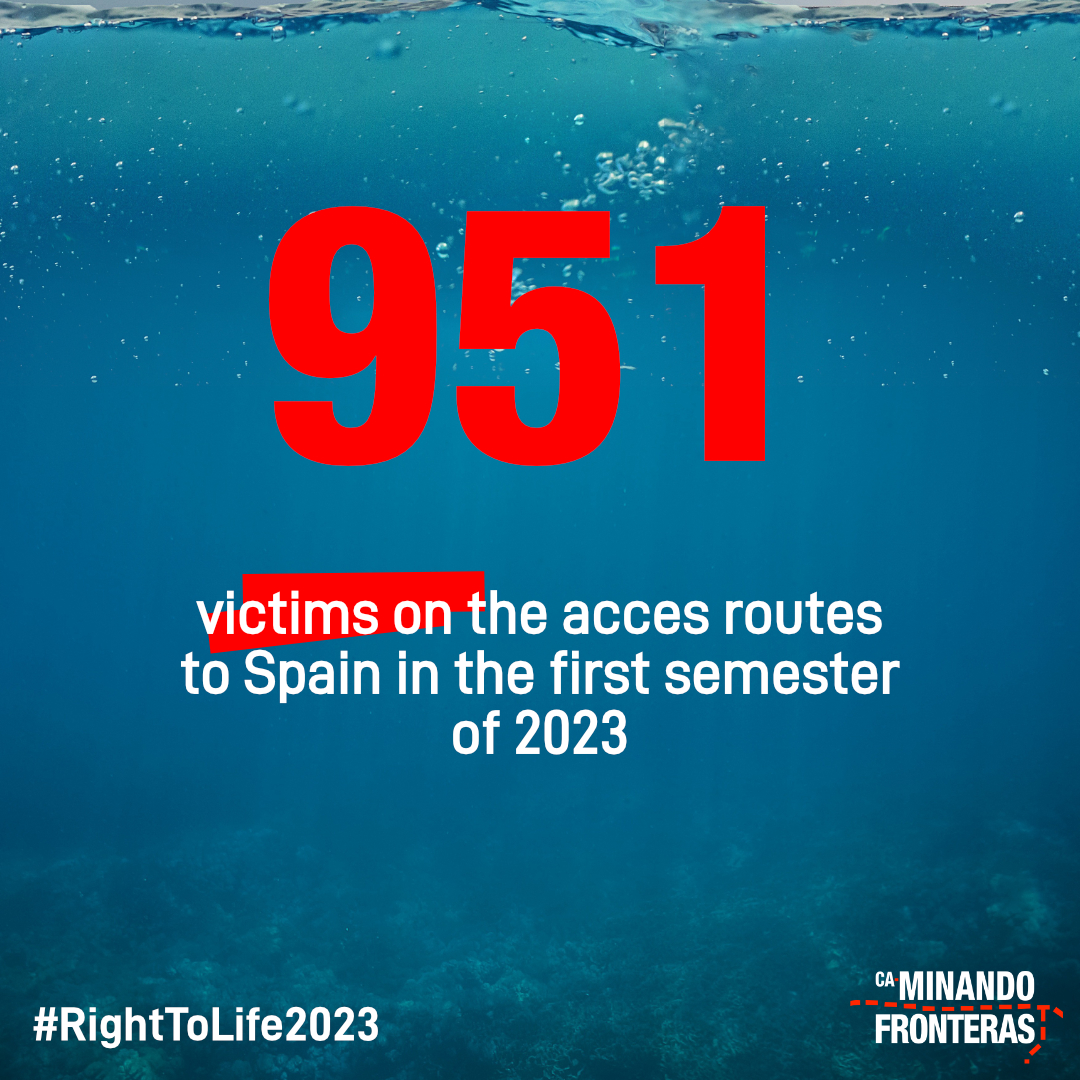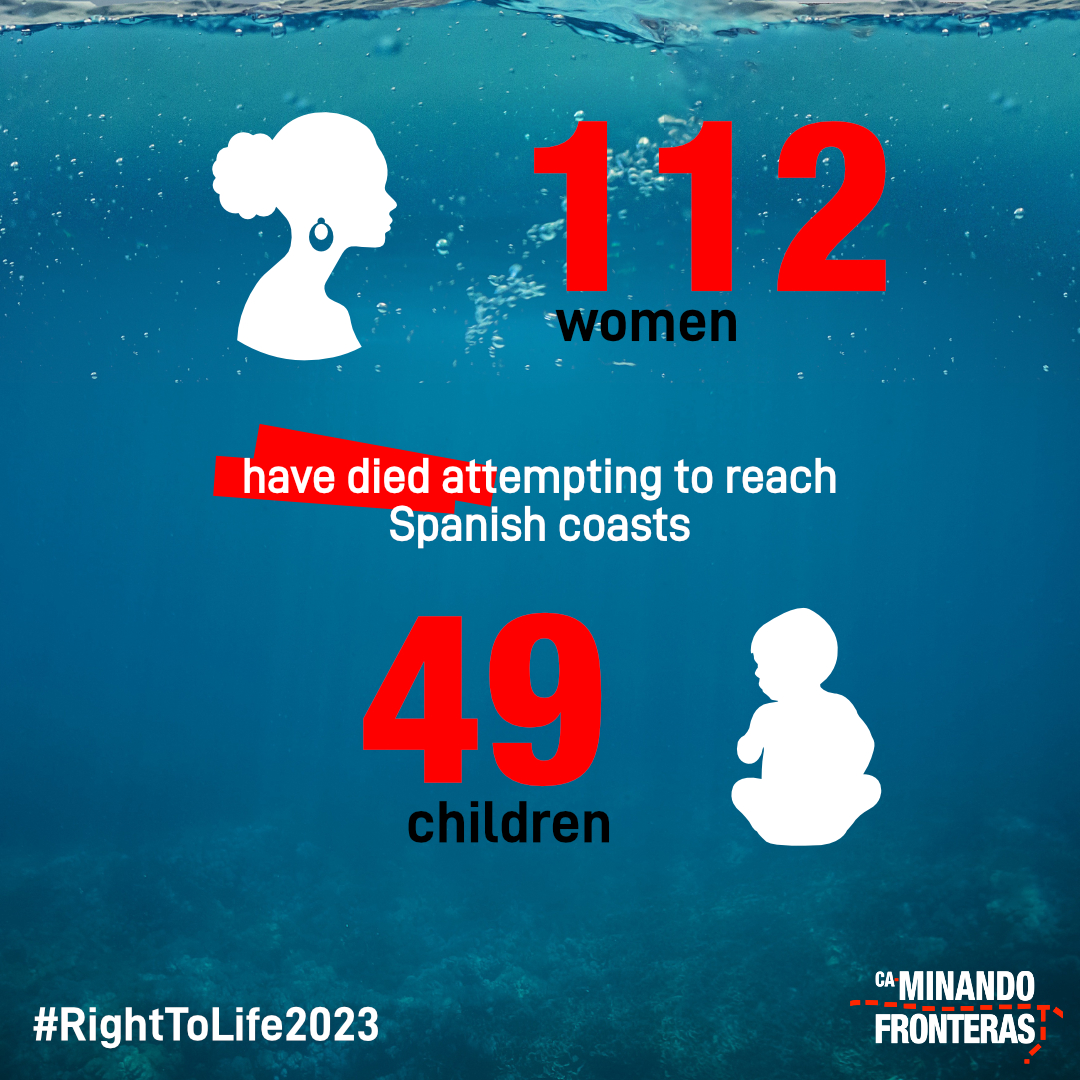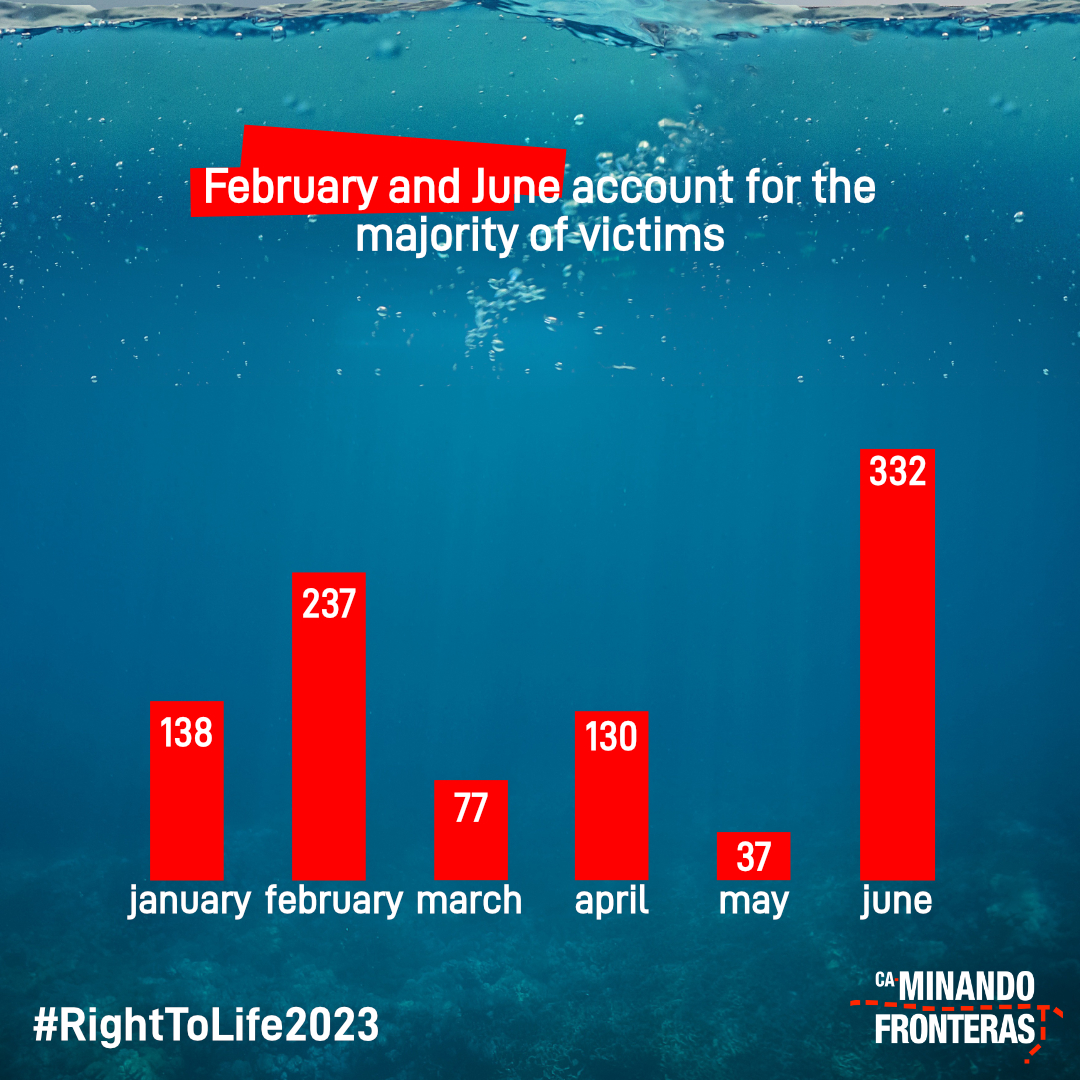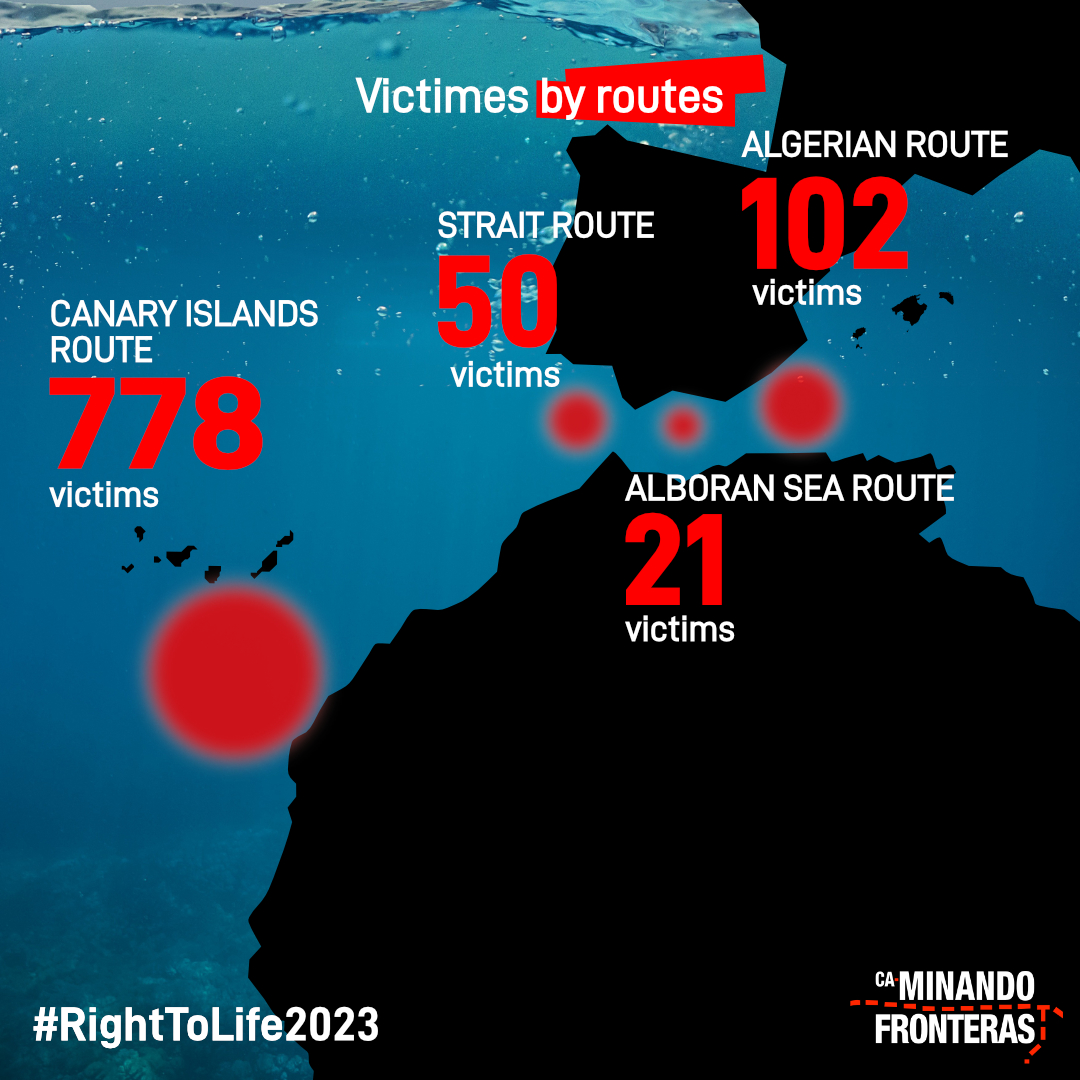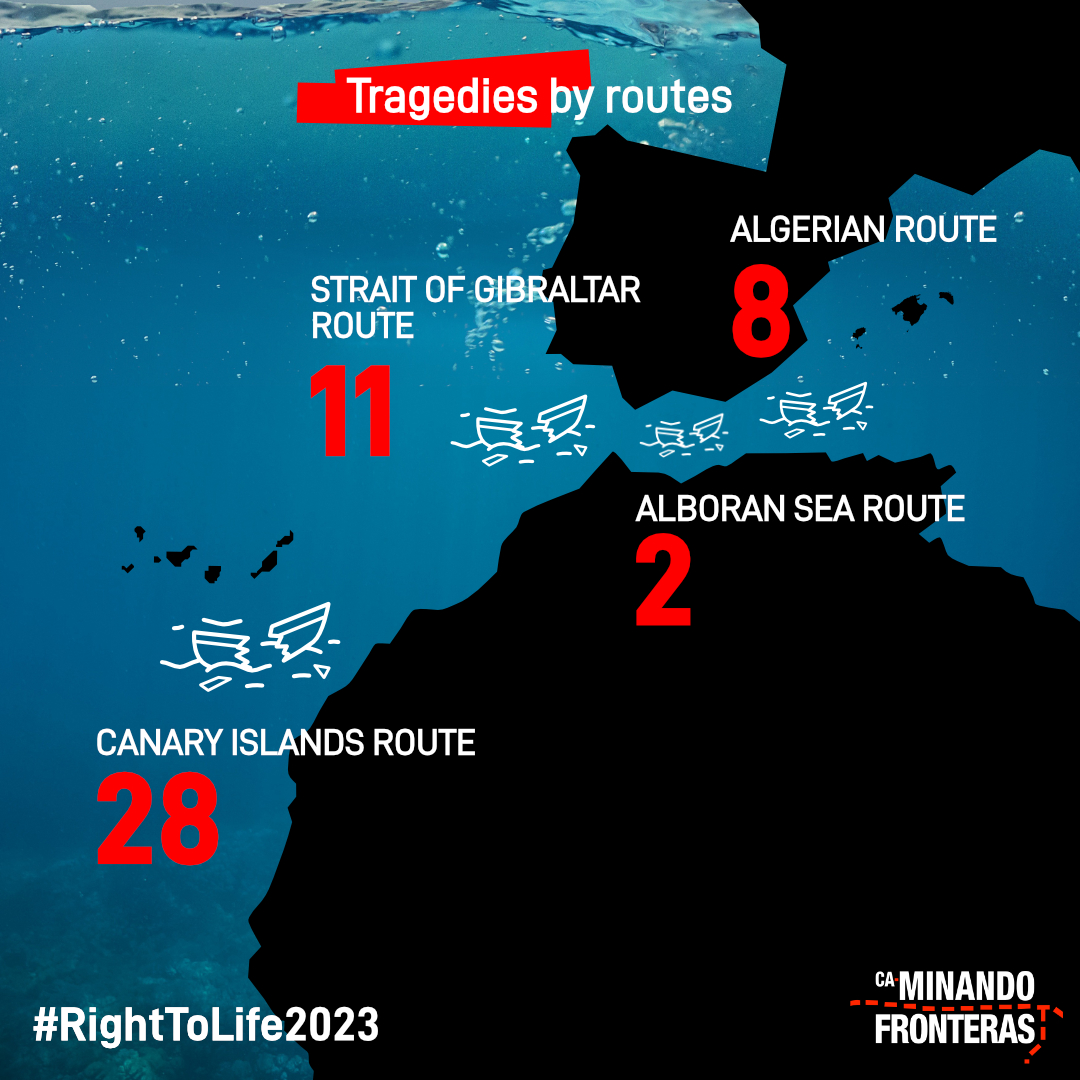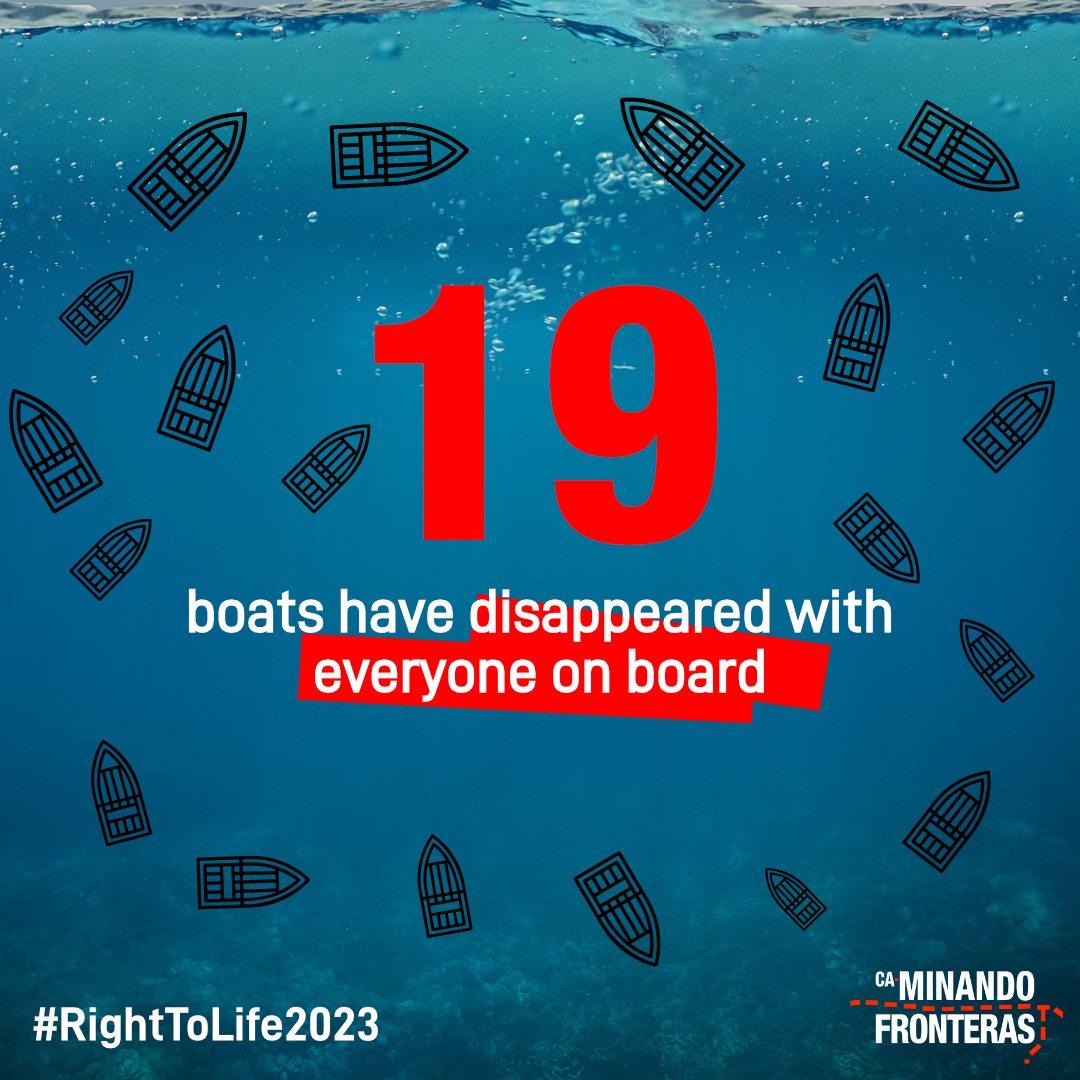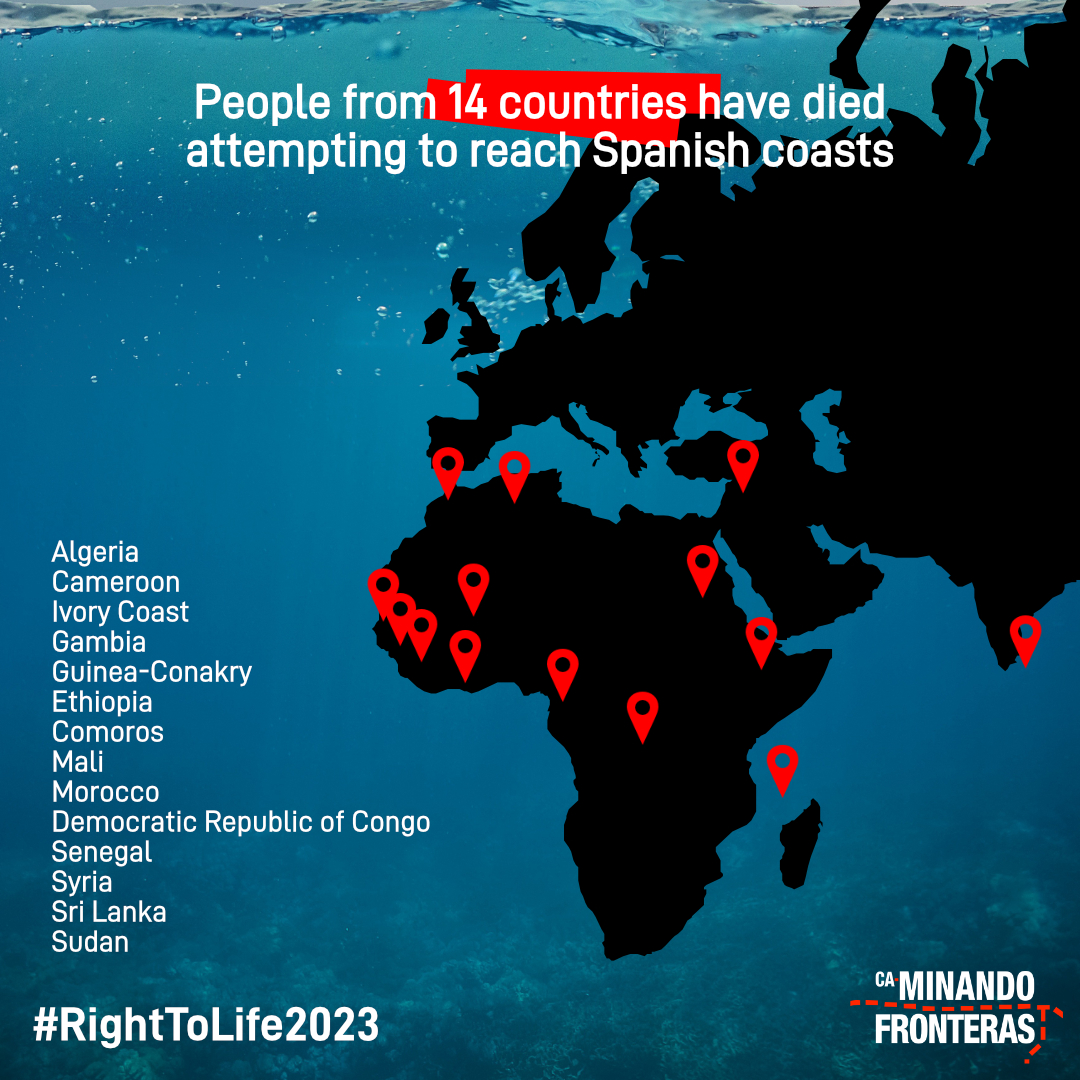On average, 5 people lost their lives every day in the first half of 1023 on the Euro-African Western Border.
Madrid, 6 July 2023
Ca-minando Fronteras presents today, Thursday 6 July 2023, the figures of the border monitoring carried out from January to June this year. During this first half of the year, 951 victims have been recorded on the Euro-African Western Border. Direct data from primary sources have been cross-checked with official sources, migrant communities and social organisations on the ground with whom Ca-minando Fronteras is in permanent contact. Within the framework of our Observatory on Human Rights at the Borders, the data documented are as follows:
- 19 boats missing with all the people on board.
- 112 women and 49 children have lost their lives at sea in the first six months of 2023.
- The victims came from up to 14 different countries, including Morocco, Algeria, Cameroon, Ethiopia, Mali, Democratic Republic of Congo, Gambia, Guinea, Ivory Coast, Senegal, Sri Lanka, Comoros, Sudan and Syria.
Again , the access routes to Spain were divided into four different routes: i) the Canary Islands route, ii) the Alboran Sea route, iii) the Algerian route and iv) the Strait of Gibraltar route. Once again, the Canary Islands route recorded the highest number of victims, with up to 778 people losing their lives in the 28 tragedies that have occurred on this route. Meanwhile, on the Alboran route, the 2 tragedies recorded in this period bring the number of victims to 21. As for the Algerian route, 8 tragedies are known to have occurred, resulting in 102 victims. Finally, on the Strait of Gibraltar, 11 tragedies left 50 people dead.
In a more detailed look at the course of the semester , the months of February and June concentrate the most casualties, with 237 and 332 people respectively.
Among the causes that have led to tragedies and victims in this period are the failure to provide assistance at sea, the delay in activating search and rescue resources, the inadequacy of resources when they are activated, bad practices in rescues operations and the lack of coordination between the Spanish and Moroccan States, whose relations are determined by geopolitical interests linked to migratory control rather than the defence of the right to life.
Cases of human rights violations against victims and their families have also been documented. Surviving victims have suffered imprisonment, forced displacement, physical attacks and detention under the law on foreigners. The missing victims have been denied the right to be searched for. Victims whose bodies were found suffered from burial in mass graves, lack of identification protocols with guarantees, and absence of dignified burials respecting the beliefs they practised in life.
“The politics of death have been in place on the border for a long time. But we have also detected an increase in impunity in the face of rising death rates, which leaves victims and their families without access to reparation and justice. These figures are part of a process of reconstruction of memory: we count them so as not to forget them, we published them for their families and communities, as a tool to continue fighting for borders to stop being spaces of no rights”, Helena Maleno Garzón, coordinator of Ca-minando Fronteras.
“We were waiting for hours, begging , we called everywhere, Salvamento, the Moroccan Navy, we sent positions, but no one came. The sea is very big and very scary. We prayed all the time to try to calm down, but it’s not easy. The children were crying a lot, we had no water… I saw them dying in front of me, they were falling into the sea and when the rescue arrived it was too late. The Moroccans threw us in the desert, I had burns and they got infected, thank God I am alive, we only have God left when everyone wants to kill us”, F. B, a survivor victim of one of the documented shipwrecks.
“We haven’t heard from her for many days. We are very worried, this is very hard, we talked to her every day. Her family back home is very worried. I’m doing everything I can to look for her, to try to find out something and get news of her, but we don’t know how or where to look? And I am the one who has to inform them, and I have nothing to tell them. They still have hope, but I think she is no longer with us. We just want to know” A.J., friend of family members in search.
Download here our Monitoring Right to Life – January-June 2023 in english and, at the bottom of the page, in Spanish and French.
Are you looking for a missing relative or acquaintance on a migratory route? If this is your case, contact us here.
